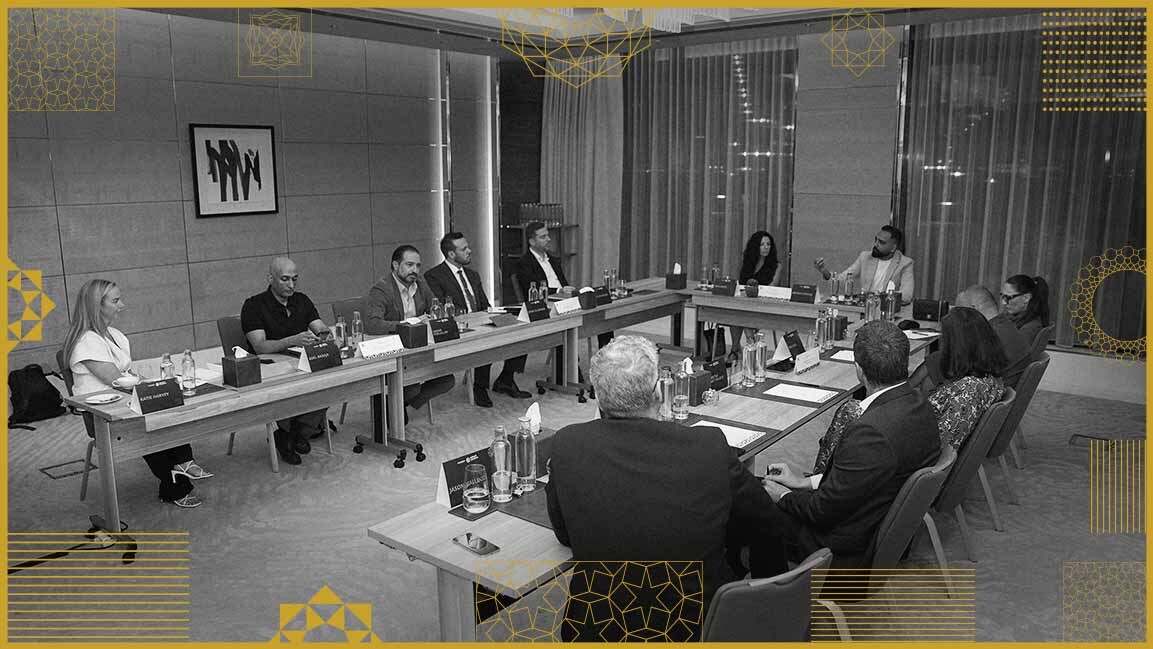- | 10:00 am
How is AI reshaping the advertising and PR industries? Impact Council members deliberate
Experts emphasize that adapting to the rapid evolution of AI while maintaining one's humanity is crucial for navigating this new technology

As the digital landscape evolves, brands are placing greater emphasis on delivering highly personalized customer experiences. Advanced technologies like artificial intelligence (AI) and machine learning drive this shift.
During a recent meeting of the Fast Company Middle East Impact Council’s Future of PR and Advertising subcommittee, members delved into the challenges and opportunities of crafting personalized experiences in today’s digital age.
The subcommittee explored how AI and other technologies are revolutionizing personalized brand experiences, transforming consumer engagement, and reshaping the future of marketing.
THE ROLE OF AI
As AI continues infiltrating various industries, it has made significant strides in creative fields such as content creation, profoundly affecting PR and advertising.
Jamal Al Mawed, Founder and Managing Director of Gambit PR & Communications, describes AI’s introduction as a revolutionary shift. “If we look at the printing press as the democratization of reading and the internet as the democratization of information, then artificial intelligence is the democratization of content production and thoughts,” he adds.
Al Mawed emphasizes that AI should enhance industry processes, not replace them. “This is where we might see a cognitive dissonance between the right and wrong ways of utilizing technology,” he adds.
Katie Harvey, Co-Founder of Q Communications, acknowledges AI’s rapid evolution but stresses its reliance on human intelligence.
She explains that while creatives spot trends, AI tends to follow them. As long as creatives stay ahead, they retain their competitive edge. Harvey also highlights AI’s underexplored potential to deliver content to targeted audiences in a personalized way.
Jason Gallucci, Head of PR and Strategic Comms at Acorn Strategy, adds that AI’s evolution has led clients to bring content production in-house, increasing the need for the industry to educate them on the value of creative and strategic craft. “It’s about demonstrating the unique intelligence and impact we bring,” he says.
“This places an onus on us as an industry to create our campaigns to educate clients on the value of craft, whether creative or strategic craft, highlighting our kind of intelligence, the change and impact we make.”
ADAPTABILITY IS KEY
Samantha Stuart-Palmer, Chief Growth Officer of FP7 McCann, says AI is the beginning of a tidal wave of change.
She believes we must foster a culture of curiosity and develop agile infrastructures to navigate these transformations. The uncertainty of where these advancements will lead requires proactive adaptation.
Lara Arbid, CEO of Initiative and Magna Global and MCN ExCo Member stresses that adaptability is key and can be achieved through proper employee training. “We must ensure that we stay human and recognize the value we bring. This is a moment to evolve, do things better and faster while remembering why we started.”
Similarly, Adel Baraja, CEO of Publicis Communications KSA, emphasizes that adaptability remains one of the biggest human advantages. “We need to approach this with minimal resistance. The quicker we embrace it, the faster we’ll adapt,” he notes.
Hasan Fadlallah, CEO of Brand Lounge, says maintaining ethical adoption while navigating AI is crucial. “Adopt technology, but do so ethically while maintaining our humanity. As we’ve heard today, the future will increasingly be computer-to-computer, so in the short term, let’s focus on human-to-human connections. At the same time, we must build our organizations to be future-proof by adopting a more agile approach moving forward.”
Reda Raad, Group CEO of TBWA\Raad, emphasizes the importance of collaboration, agility, and preparing organizations to embrace these qualities fully. “The biggest takeaway is the need to work together, stay agile, and strengthen our organizations to adapt to this.”
THE FUTURE
Michael Golding, Marketing & Communications Executive Director of Ethara, highlights that this development mirrors humanity’s evolving relationship with technology. “How we adapt will be crucial,” he states. “Technology will expand our ability to create magic across all industries, though it will also bring future challenges.”
Elda Choucair, CEO of Omnicom Media Group (MENA), adds that there’s still much to learn about AI. “This is just the beginning of understanding and familiarizing ourselves with the technology,” she remarks.
She states that research shows that 40% of marketers say that they know enough, but in reality, it is just as little as 14%. “It just tells you there’s more than 60% who have no idea, and these are partners that we work with. There is so much yet to be discovered.”
“The most important thing is to educate ourselves and encourage every partner and connection to understand how much they can influence our work and lives. By doing so, we can hopefully find ourselves in a better position,” she says.
Maclean Brodie, CEO of MSL Group Middle East, offers a critical reminder that the industry’s role extends beyond content creation to fostering culture and connection, both essential to the human experience. “AI is a powerful tool, and we will all use it,” Brodie states. “But we can’t let it define our jobs. Our work lives in the human world and human existence.”
The Impact Council leaders come together to address industry-wide challenges and capitalize on emerging opportunities. These gatherings serve as a hub for networking and collaboration, uniting some of the brightest minds in the field.







































